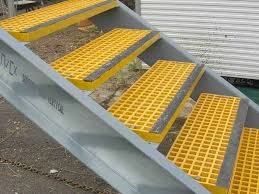
-
 Afrikaans
Afrikaans -
 Albanian
Albanian -
 Amharic
Amharic -
 Arabic
Arabic -
 Armenian
Armenian -
 Azerbaijani
Azerbaijani -
 Basque
Basque -
 Belarusian
Belarusian -
 Bengali
Bengali -
 Bosnian
Bosnian -
 Bulgarian
Bulgarian -
 Catalan
Catalan -
 Cebuano
Cebuano -
 China
China -
 China (Taiwan)
China (Taiwan) -
 Corsican
Corsican -
 Croatian
Croatian -
 Czech
Czech -
 Danish
Danish -
 Dutch
Dutch -
 English
English -
 Esperanto
Esperanto -
 Estonian
Estonian -
 Finnish
Finnish -
 French
French -
 Frisian
Frisian -
 Galician
Galician -
 Georgian
Georgian -
 German
German -
 Greek
Greek -
 Gujarati
Gujarati -
 Haitian Creole
Haitian Creole -
 hausa
hausa -
 hawaiian
hawaiian -
 Hebrew
Hebrew -
 Hindi
Hindi -
 Miao
Miao -
 Hungarian
Hungarian -
 Icelandic
Icelandic -
 igbo
igbo -
 Indonesian
Indonesian -
 irish
irish -
 Italian
Italian -
 Japanese
Japanese -
 Javanese
Javanese -
 Kannada
Kannada -
 kazakh
kazakh -
 Khmer
Khmer -
 Rwandese
Rwandese -
 Korean
Korean -
 Kurdish
Kurdish -
 Kyrgyz
Kyrgyz -
 Lao
Lao -
 Latin
Latin -
 Latvian
Latvian -
 Lithuanian
Lithuanian -
 Luxembourgish
Luxembourgish -
 Macedonian
Macedonian -
 Malgashi
Malgashi -
 Malay
Malay -
 Malayalam
Malayalam -
 Maltese
Maltese -
 Maori
Maori -
 Marathi
Marathi -
 Mongolian
Mongolian -
 Myanmar
Myanmar -
 Nepali
Nepali -
 Norwegian
Norwegian -
 Norwegian
Norwegian -
 Occitan
Occitan -
 Pashto
Pashto -
 Persian
Persian -
 Polish
Polish -
 Portuguese
Portuguese -
 Punjabi
Punjabi -
 Romanian
Romanian -
 Russian
Russian -
 Samoan
Samoan -
 Scottish Gaelic
Scottish Gaelic -
 Serbian
Serbian -
 Sesotho
Sesotho -
 Shona
Shona -
 Sindhi
Sindhi -
 Sinhala
Sinhala -
 Slovak
Slovak -
 Slovenian
Slovenian -
 Somali
Somali -
 Spanish
Spanish -
 Sundanese
Sundanese -
 Swahili
Swahili -
 Swedish
Swedish -
 Tagalog
Tagalog -
 Tajik
Tajik -
 Tamil
Tamil -
 Tatar
Tatar -
 Telugu
Telugu -
 Thai
Thai -
 Turkish
Turkish -
 Turkmen
Turkmen -
 Ukrainian
Ukrainian -
 Urdu
Urdu -
 Uighur
Uighur -
 Uzbek
Uzbek -
 Vietnamese
Vietnamese -
 Welsh
Welsh -
 Bantu
Bantu -
 Yiddish
Yiddish -
 Yoruba
Yoruba -
 Zulu
Zulu
Feb . 02, 2025 05:27
Back to list
Ladders & Handrails
In the swiftly evolving landscape of industrial manufacturing and transportation, GRP (Glass Reinforced Plastic) vessels have emerged as a pivotal component due to their exceptional properties and versatility. These vessels, constructed from a composite of fiberglass reinforcements and polyester resins, offer significant advantages that collectively underscore their growing relevance across various sectors.
Through rigorous testing and compliance with stringent industry standards, GRP vessels affirm their authoritative position in manufacturing sectors. Certified by global bodies for safety and quality, these vessels comply with ISO 9001 and other relevant standards, providing assurance of enduring performance under critical conditions. In highly regulated industries such as pharmaceuticals and food processing, the authoritative endorsement of GRP vessels plays a crucial role, ensuring they meet hygiene and safety protocols essential for these sectors. Trust in GRP vessels is bolstered by documented success stories and case studies across the globe. Industries that have transitioned to GRP vessels frequently report enhanced operational efficiency and a notable reduction in environmental impact due to their recyclability and the energy efficiency involved in their manufacture. The trust placed in GRP vessels by high-profile enterprises underscores their reliability and underscores their status as a cornerstone of modern industrial applications. In summary, the adoption of GRP vessels is a testament to the synergy of experience, expertise, authoritativeness, and trustworthiness in product selection for industrial applications. As manufacturing practices continue to evolve, GRP vessels are setting benchmarks for performance, sustainability, and economic viability. Industrial stakeholders seeking to optimize their operations would benefit from integrating GRP vessels into their systems, reaping the host of advantages they provide while supporting the broader objectives of sustainability and efficiency.


Through rigorous testing and compliance with stringent industry standards, GRP vessels affirm their authoritative position in manufacturing sectors. Certified by global bodies for safety and quality, these vessels comply with ISO 9001 and other relevant standards, providing assurance of enduring performance under critical conditions. In highly regulated industries such as pharmaceuticals and food processing, the authoritative endorsement of GRP vessels plays a crucial role, ensuring they meet hygiene and safety protocols essential for these sectors. Trust in GRP vessels is bolstered by documented success stories and case studies across the globe. Industries that have transitioned to GRP vessels frequently report enhanced operational efficiency and a notable reduction in environmental impact due to their recyclability and the energy efficiency involved in their manufacture. The trust placed in GRP vessels by high-profile enterprises underscores their reliability and underscores their status as a cornerstone of modern industrial applications. In summary, the adoption of GRP vessels is a testament to the synergy of experience, expertise, authoritativeness, and trustworthiness in product selection for industrial applications. As manufacturing practices continue to evolve, GRP vessels are setting benchmarks for performance, sustainability, and economic viability. Industrial stakeholders seeking to optimize their operations would benefit from integrating GRP vessels into their systems, reaping the host of advantages they provide while supporting the broader objectives of sustainability and efficiency.
Next:
Related Products









